Voters Support Trump’s Proposed Spending, Staffing Cuts
Most voters support President Trump’s plan for major spending and staffing cuts in the federal government, but many still worry he won’t shrink the government enough.

Most voters support President Trump’s plan for major spending and staffing cuts in the federal government, but many still worry he won’t shrink the government enough.
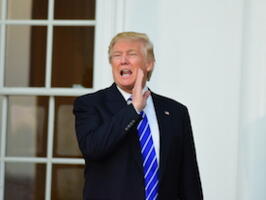
President Trump in his inaugural address charged the Washington, D.C. establishment with long profiting at the expense of the average American, and voters strongly agree.
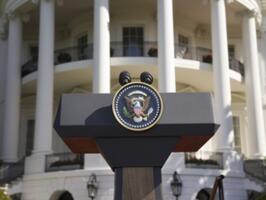
America has a new president, and voters are more comfortable than ever with the amount of power he holds.

Some media commentators were highly critical of President Trump's use of the phrase "America First" in his inaugural address to describe his trade and foreign policy agenda, but most voters continue to feel that the new commander in chief is on the right track.

Voters overwhelmingly followed President Trump’s first day in office, but Republicans were a lot happier with it than others were.

Donald Trump will be sworn in as president of the United States today on Abraham Lincoln’s Bible, the same one used by President Obama for both of his inaugurations. Voters strongly support the longstanding tradition of presidents swearing in on the Bible.
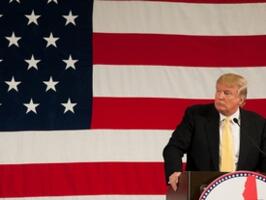
As the presidential inauguration of Donald Trump gets underway, most voters expect to tune in to at least some of it, although nearly half of Democrats say they’ll be tuning it out. With widespread protests planned, just over half of all voters are concerned about Trump's safety.
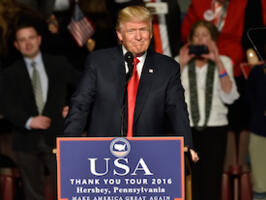
It’s Day One of the presidency that will Make America Great Again or the first day of the presidency of the most unqualified political charlatan in history, depending on whom you talk to.
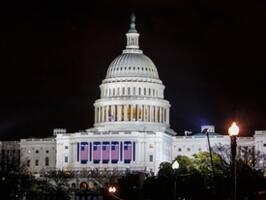
President-elect Donald Trump’s inauguration is still one day away, even though he officially won the presidency more than two months ago. But voters don’t seem to mind the wait.
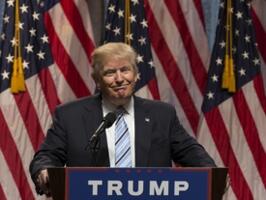
Voter attitudes about President-elect Donald Trump have changed little since Thanksgiving, with just over half of voters continuing to give him favorable marks.

Even as the media lavishes praise on President Obama's legacy, voters strongly believe his successor will wipe out most of the changes made during the Obama years.

President Obama promised America hope and change eight years ago, but voters believe his presidency drove us further apart instead.

Voters are conflicted over outgoing President Barack Obama's place in history, but they agree the passage of Obamacare will be the defining marker of his presidency.
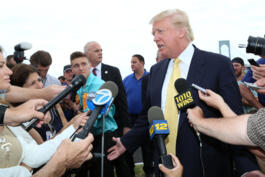
Most voters blame President-elect Donald Trump for his problems with the media and think he ought to do something about them.

Most voters think Donald Trump is likely to put his businesses first even when he is president.
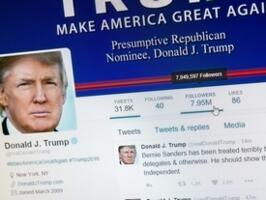
Voters tend to disapprove of President-elect Donald Trump's frequent use of Twitter but are evenly divided over whether future presidents will follow in his footsteps.

The Rasmussen Reports daily Presidential Tracking Poll for Tuesday shows that 62% of Likely U.S. Voters approve of President Obama's job performance. Thirty-eight percent (38%) disapprove.
The latest figures include 41% of who Strongly Approve of the way Obama is performing as president and 29% who Strongly Disapprove. This gives him a Presidential Approval Index rating of +12 (see trends).
Blacks (70%) are twice as likely as whites (37%) and other minority voters (37%) to Strongly Approve of the job the president is doing.
These are the final approval numbers we will post for Obama. Because Rasmussen Reports’ daily Presidential Tracking Poll is based on three days of surveying, we will not post new numbers again until Friday when we will begin tracking President Trump’s job approval.
Regular updates are posted Monday through Friday at 9:30 a.m. Eastern (sign up for free daily e-mail update).
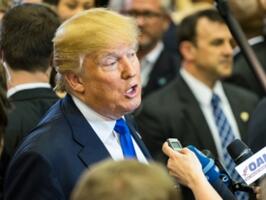
Voters who watched or followed news reports about President-elect Donald Trump’s first press conference are almost evenly divided over how he did. Republicans liked it; Democrats and unaffiliated voters didn’t.

Voters aren’t very optimistic about the future of U.S. relations with either Russia or China but tend to see the former as a more serious concern for the United States. Political party makes a difference, though: Republicans see China as the bigger danger, while Democrats are more worried about Russia.

Most voters think the U.S. government gives China a pass for its bad behavior because of its economic clout, but many think the U.S.-China relationship is about to change for the worse.